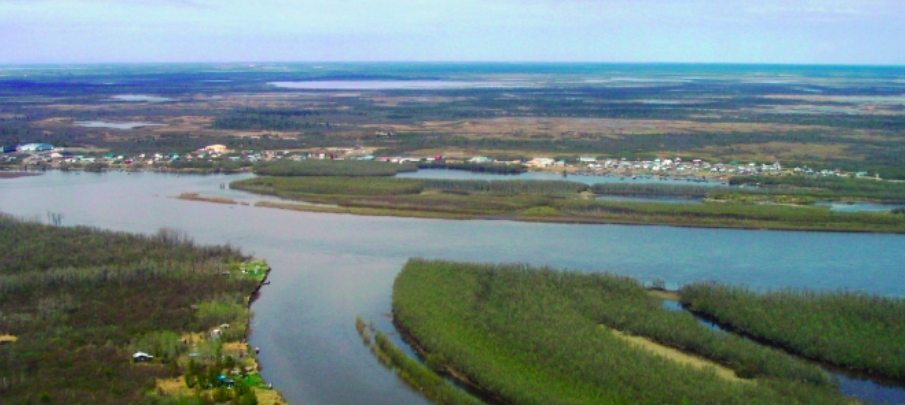ALASKA ‘INDIAN RESERVATION’ STATUS ON ICE FOR NOW
The U.S. Department of the Interior’s solicitor said Friday that it has withdrawn an 11th-hour Obama-era opinion that allowed the federal government to take land into trust for Alaska Natives.
The rule, made in the last few days of the Obama Administration, was “incomplete and unbalanced,” said the department’s acting solicitor, Daniel H. Jorjani. He said the department needs at least a year to reconsider it.
The Obama ruling was made on Jan. 13, 2017, by former DOI solicitor Hilary Tomkins, just before President Donald Trump was sworn into office. It was part of a flurry of last-ditch rulings of an administration set on “fundamentally transforming America,” as the president had promised.
Tomkins had issued opinion M-37043, an analysis of the effects of the Alaska Native Claims Settlement Act, the Federal Land Policy and Management Act, and the Supreme Court decision in Carcieri v. Salazar on the Secretary of the lnterior’s authority to accept land in trust in Alaska under the Indian Reorganization Act. It’s a complicated matter of Indian law that goes back as far as the 1930s.
Within days of the Tomkins decision, a tiny acre of land in downtown Craig, Alaska, became the toehold case to establish Indian Country in Alaska, essentially allowing the federal government to take land into trust for the Craig Tribal Association, and manage it as it does Native American reservations in the Lower 48. Its application was accepted by the Obama Administration immediately on Jan. 14, 2017.
Historically, Alaska has been an exception to the Indian Country style of federal management because of the Alaska Native Claims Settlement Act and its creation of Native corporations for regions and villages throughout the state. Native corporations are designed to be run as profit-making corporate enterprises for the benefit of Alaska Native people, with the intent that they would be generally run by Natives. Today, most of the corporate jobs in Alaska Native corporations are indeed held by Natives and they are some of the largest corporate entities in the state.
[Read: One acre is newest reservation in Alaska.]
Upon being sworn into office, President Trump asked for a review of all of the last-minute actions of the Obama Administration. On Jan. 20. 2017, the president’s chief of staff announced a regulatory review process for any new or pending regulations.
The new solicitor general for DOI concluded that the previous decision omitted the discussion of important statutory developments, resulting in “an incomplete analysis of the Secretary’s authority to acquire land in trust in Alaska.”
[Read: The entire DOI solicitor’s opinion here.]
BACKGROUND
In 2006, four Alaska Native tribes and one Alaska Native person challenged the “Alaska exception” from Indian Country in a case called Akiachak Native Community v. Jewell.
The groups argued that the Alaska exception discriminated against Alaska Natives by prohibiting them from placing land in trust status.
In 2016, the D.C. District Court agreed with the tribes and held the Alaska exception to be void and unenforceable because it violated a law prohibiting regulations that diminish any privileges for Alaska Natives that other Native American tribes enjoy.
The Akiachak Case was widely considered the first step toward a tribal reservation systems known in the Lower 48 as “Indian Country.” Alaska has, since 1971, had an ANCSA exception to Indian Country, with no reservation land left except Metlakatla. The complete inventory of Alaska’s prior reservation status is here.
With reservation status, management of fish and game resources becomes complex and law enforcement jurisdictions become contentious. The self-governed reservations cannot be taxed or regulated by the state. They are sovereign. Tribal members and business entities would become exempt from state laws on marijuana, gaming, alcohol, tobacco, fireworks, or anything else that is regulated. Alaskans would also lose access to historic trails that still being contested with the federal government.
Mary Bishop of the Alaska Outdoor Council explained the challenges of Indian Country in Alaska more fully in an opinion that appeared in the Fairbanks NewsMiner.
[Read: More Indian Country ahead – in Juneau this time]
But for now, Indian Country in Alaska is on the back burner, pending further legal analysis by Trump’s Department of the Interior.
